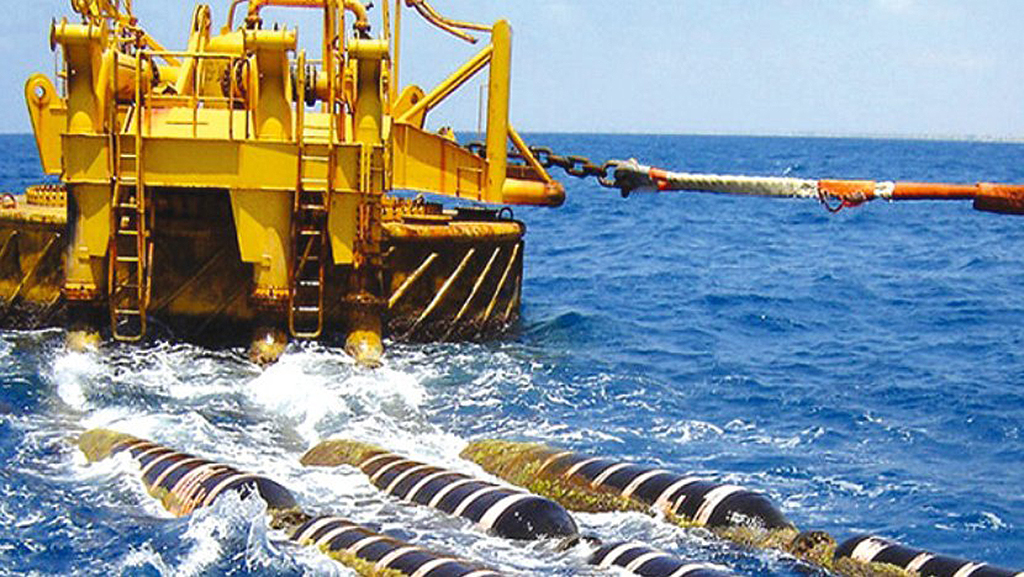The government on Tuesday green-lit Cyprus’ participation in the Great Sea Interconnector – the commercial name for the mooted subsea electricity cable linking the island to Crete.
The decision was announced by Energy Minister George Papanastasiou at the presidential palace following a meeting of the cabinet.
Papanastasiou said the interconnector project – currently costed at approximately €1.9 billion – is of “particular importance” for growth and prosperity.
It would connect the island’s grid to the European grid, enhancing energy security.
The interconnector would help drive down electricity prices, along with the advent of natural gas and an expansion in renewables.
According to the minister, from January 2025 through to December 2029, the Republic of Cyprus will pay €25 million per year.
This would be done to subsidise “a possible increase in electricity bills… so that consumers are not burdened by the increase”.
The amounts would be disbursed from a fund of the Republic, specifically from the auctioning of greenhouse gas emissions rights.
And the first €25 million instalment would be included in a supplementary state budget.
The importance of the project, said the minister, is confirmed by the fact that the EU has approved €657 million in funding for it via the ‘Connecting Europe Facility’.
The formal decision to participate in the Great Sea Interconnector was taken exactly a week after a high-level meeting in Nicosia involving stakeholders from Cyprus and Greece.
“As the government, we demonstrated the required responsibility and diligence commensurate with decision-making on projects of such scope,” Papanastasiou said.
“Our sole objective is to serve the interests of the Cypriot people, to whom we are accountable.”
Papanastasiou went on to describe the roadmap ahead following Tuesday’s decision – the government would stay in touch with both Athens and the European Commission, sharing feedback on the implementation of the project.
The government would also keep up contacts with “parties” who have shown “a real interest in the project”.
Reports suggested the administration was working on a tight timetable. It had to take a formal decision regarding the interconnector, then give the energy regulator here time to amend the regulatory framework, so that by the time President Nikos Christodoulides travels to Athens on Thursday he’d be able to finalise a deal with his Greek counterpart Kyriakos Mitsotakis.
Media reports said three of the four major issues have been ‘locked in’. First, how much Cypriot consumers (via the state) would contribute toward the construction costs of the interconnector up until 2030 when the cable goes live.
Secondly, the matter of the guaranteed return to the project promoter. The guaranteed rate of return is said to be 8.3 per cent over a period of 17 years.
Thirdly, splitting the ‘geopolitical risk’ at 50-50 between Cyprus and Greece. This concerns compensation to the promoter in the event the project is suspended for reasons beyond its control.
The only pending issue is whether Cyprus, as a state, would acquire a direct stake in the project via a holding company. Earlier, Nicosia intimated it could invest up to €100 million in the holding company, becoming a minority shareholder.
The project promoter is Greece’s Independent Power Transmission Operator, Admie.
Admie is 51 per cent owned by the Greek state. The State Grid Corporation of China has a 24 per cent stake, with the rest owned by other investors.
As a non-government source told the Cyprus Mail, it would make sense for the Cypriot state to become an equity investor in the project, especially if the agreed return is 8.3 per cent as reported.
In fact, said the source, it would make sense for the Cypriot state to invest far more than the €100 million.
“The state budget has a 2.7 per cent surplus right now… that’s about €700 million. These are funds that could be utilised toward investing in the holding company.”







Click here to change your cookie preferences